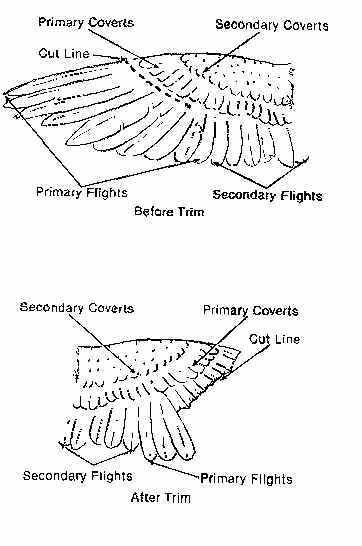Page 1 of 1
Taming
Posted: Wed Nov 07, 2007 7:19 am
by Auron
I'm about to buy an IRN but i've only been able to find adults and these are untamed

I'd like to know if it is possible to tame an adult and how much time it may take to do so
Thanks in advance for replying
Posted: Wed Nov 07, 2007 6:01 pm
by Donna
Taming an adult bird is much more difficult. It takes alot of time and patients. Depending on how wild the bird is it could take up to 6 months with every day interaction. If the adult bird has been handled in the past then your time taming is shorter. First you have to earn that birds trust that's the most important task. Never put time limits on the bird. You want to limit the training sessions to about 5 to 10 minutes about 3 times a day other wise you and the bird gets frustrated. Be calm and talk softly if the bird nips do'nt react to the bite birds, love drama.
Donna
Posted: Wed Nov 07, 2007 10:46 pm
by Lauren
Adults are much harder to tame, although I'm sure it can be done with alot of interaction. There is no time limits with taming birds and it might take years. So be prepared for the long haul. Sharing your life with a bird is a life long commitment.

Posted: Wed Nov 07, 2007 10:47 pm
by Auron
Thanks a lot for replying
six months is not that long if you think about it
Will clipping help?because i'm seriously considering clipping it's wings
Posted: Wed Nov 07, 2007 11:00 pm
by Lauren
Clipping definately helps make things easier. Later on, when you have some trust, you can try letting it fly. Which is what I do because well, a birds got to be a bird.

Posted: Wed Nov 07, 2007 11:41 pm
by Auron
so, i need to clip the 10 primary feathers?
Posted: Thu Nov 08, 2007 2:02 am
by Lauren
I do the first 5 on each wing, always do both sides so the bird is balanced and it should only stop the bird from gaining height. If you have not clipped before or don't know how, its best to get someone who can show you or an avian vet can do it for you. You might need someone to help hold your bird. Here is a diagram..

Posted: Thu Nov 08, 2007 6:48 am
by Auron
I already helped a friend numerous time before clip his cockatiel
Its just that he used to clip all 10 feathers.
We used to hold the bird in a towel then, somebody would clip the wings
Posted: Thu Nov 08, 2007 3:37 pm
by Melika
Your friend may have clipped that many feathers if his 'tiel could still fly with just five clipped ('tiels are amazingly powerful flyers). It's best to begin with just the five and adjust if needed.
When you clip the secondary feathers, you take away their ability to glide down safely. The primary feathers generally provide the lift and that's what you want to prevent to keep them from flying.
Our IRNs only have their primaries cut and can glide straight out and down but not fly up.
I'm not sure, in your part of the world, when breeding season is. It may be that breeders don't have any chicks at this time. Contact a breeder and ask, if possible, when they expect to have babies availible. If you want a young bird, you can always wait. ^_^
And no, six months isn't very long, but as was stated it could take years. Some birds will never progress beyond step-up (meaning no petting/kissing/etc.). And some have developed the habit of screaming. Some may never progress even to taking food from your hand.
You have to evaluate your life and decide if that's enough for you from a bird. Decide if you can handle having a bird that just sits on it's cage and only interacts with you through words and whistles and calls- for the remaining twenty years of his or her life.
But some birds already come touchable and just need a good home. So it really depends.

Posted: Fri Nov 09, 2007 10:07 am
by Auron
That's the main problem, i dont know of any breeders here apart from some guys working at the wildlife foundation and who breed echo parakeets, but i'm sure no one of them would be willing to give their chicks.I'm almost sure that the IRN are imported
As for the possibility that it may not like to be petted, that's fine with me though i would be little sad if it did happen but it remains a pet and we are responsible for ensuring it lives happily.

